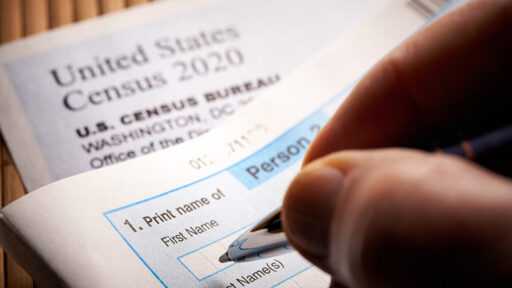Differential privacy keeps that data private. It’s a mathematical framework whereby a statistical output can’t be used to determine any individual’s data in a dataset, and the bureau’s algorithm for differential privacy is called TopDown. It injects “noise” into the data starting at the highest level (national), moving progressively downward. There are certain constraints placed around the kind of noise that can be introduced—for instance, the total number of people in a state or census block has to remain the same. But other demographic characteristics, like race or gender, are randomly reassigned to individual records within a set tranche of data. This way, the overall number of people with a certain characteristic remains constant, while the characteristics associated with any one record don’t describe an individual person. In other words, you’ll know how many women or Hispanic people are in a census block, just not exactly where.
On August 28, Republican Representative August Pfluger introduced the COUNT Act. If passed, it would add a citizenship question to the census and force the Census Bureau to “cease utilization of the differential privacy process.” Pfluger’s office did not immediately respond to a request for comment.



No, but the falsified data isn’t useless just because it isn’t aligning with reality. It’ll absolutely be suitable for propaganda purposes.
Propaganda doesn’t need data.
Correct, it doesn’t need it, but that doesn’t mean they won’t use it. They will use any data of spurious quality if it supports their agenda. Ergo, it’s not useless - it has a use for a rather evil purpose.
You keep inserting the word “need” when I never said that. It’s optional, but it enhances the effectiveness if they can point to a number and say “see, we’ve got data.”
Sorry, you’ve lost me. Bad faith actors make up their own truth. Collecting data is expensive. Making shit up and forcing it to be published as truth is faster, cheaper and more effective.
“See, we’ve got the data” means nothing to propagandists.